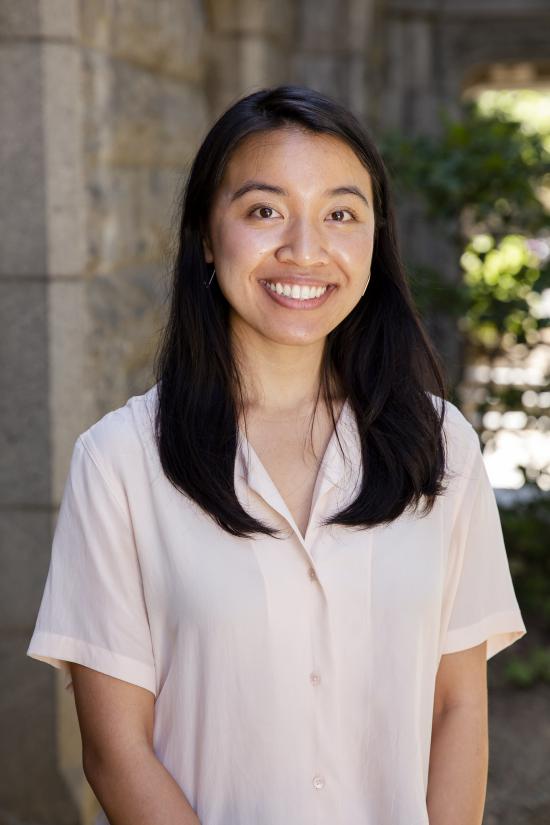Tiffany Pham is on a mission to ‘queer’ the field of HCI: that is, to assess current technical systems and the way they uphold the (heteronormative) status quo, and in turn, design against them.
The second-year Master of Information and Management (MIMS) student has been awarded the Paul Fasana LQBTQ Studies Fellowship, which supports School of Information graduate students whose research interests or studies are related to lesbian, gay, bisexual, transgender, and/or queer studies in any field or discipline.
Pham posits that by acknowledging the power of technical systems, one can either reinforce heteronormative conceptions of identity or challenge said notions of identity.
Pham has a bachelor’s degree from Columbia in psychology and computer science, and in addition to the MIMS program, is also pursuing the Graduate Certificate in Applied Data Science. Her academic areas of focus as a MIMS student have been human-computer interaction (HCI) and user experience research. “To me,” she said, “excellence is measured by how best I can apply this research for social good.”
Her work exemplifies this: she’s a former fellow with the Center for Technology, Society and Policy, where she uses her skills as a researcher to shed light on challenges public defenders face as they navigate the criminal justice system. In partnership with the Intentful Tech Collaborative, she’s also conducted research for the Asylum Research Center Foundation, an organization that aids researchers who assist refugees and asylum seekers when applying for asylum.
“I’m particularly interested in the ways that communities — particularly queer communities — subvert existing technical systems and design new technical systems to support their identities and mirror their values,” she said. She’s currently doing research for a social app that was designed by queer people for queer people. “Very few dating and social apps are designed solely for queer people,” Pham said. So far, she’s surveyed and interviewed over 600 users regarding their experience with the app, conceptions of identity, and how the two relate.
“Tiffany bravely challenges the existing norms about identity in the field of human-computer interaction,” the fellowship committee wrote. “Her research investigates the values and affordances of social apps in supporting divergent and mutable presentations of queer identity.”
“As a queer woman of color,” Pham said, “it’s imperative to me that technical systems more thoughtfully engage with identities and all of their intersections and divergencies. Designing technical systems that allow users to more authentically present their identities, better interrogate existing normas about identity, and perhaps, be more empathetic toward those with identities different from their own is the goal.”










